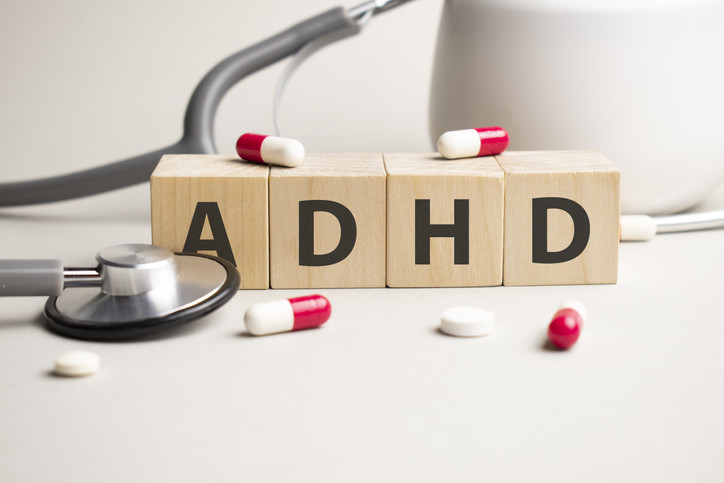Recent Articles

Depression symptoms: Recognizing common and lesser-known symptoms

Medication side effects: What are your options?

Independent living with home care assistance: Balancing autonomy and support

Dialysis: What to expect from this life-changing — and lifesaving — treatment

The BEEP program: Keep your balance

Hoarding: What to know about this mental health disorder

21 spices for healthy holiday foods

Listeria: How to protect yourself from this common cause of food poisoning

Adult day care can benefit older adults and their caregivers

Digestive enzymes: How supplements like Lactaid and Beano can help with digestion
Diet & Weight Loss Archive
Articles
Sugar substitutes: New cardiovascular concerns?
People who use artificial sweeteners such as aspartame (NutraSweet, Equal), acesulfame potassium (Sunnett, Sweet One), and sucralose (Splenda) may have a higher risk of cardiovascular disease compared with people who avoid these products. These zero-calorie sweeteners might not help people lose weight, and experts postulate that artificial sweeteners may trigger inflammation and alter normal metabolism, the gut microbiome, and blood vessels in ways that promote type 2 diabetes, unhealthy cholesterol levels, and high blood pressure.
How can meal schedules affect your weight?
Some doctors recommend eating meals earlier in the day to control weight, and some evidence backs that up. For example, a 2022 study found that eating later in the day increased hunger and fat storage, and decreased appetite-reducing hormone levels and fat burning. To eat meals earlier in the day, one approach is eating either two large meals per day (a large breakfast and a second large meal in midafternoon) or at least having a third meal that ends by 5 p.m.
Kidney health quick-start guide
Unhealthy lifestyle habits, chronic diseases, and genetic conditions can damage the kidneys and reduce their ability to do their many jobs. But many precautions can help protect the kidneys. Examples include controlling diabetes; lowering high blood pressure; moderating intake of salt, alcohol, and protein; limiting intake of oxalate-rich foods such as spinach, almonds, or cashews; losing weight; stopping smoking; exercising regularly; staying hydrated; limiting the use of nonsteroidal anti-inflammatory drugs (NSAIDs); and getting annual kidney function tests.
Attention deficit disorder linked to higher heart disease risk
People with attention-deficit hyperactivity disorder, a condition marked by trouble focusing and impulsive behavior, may be more likely to have cardiovascular disease that people without the disorder.
When is the "right" time for weight loss surgery?
Weight-loss surgery is now viewed as a way to both prevent and treat health problems linked to extreme obesity, such as diabetes, heart disease, and sleep apnea. Annually, more than 250,000 Americans undergo bariatric procedures, which can help extend their lives. Weight-loss procedures include sleeve gastrectomy, gastric bypass, and gastric banding, which reduce stomach size and change the way the body absorbs food. The surgery adds to other weight-loss measures such as diet, exercise, and medications.
Heart health guidelines get updated
The American Heart Association recently revised its checklist for achieving optimal heart health. Adequate sleep was added, and updates were made to previous recommendations for diet, cholesterol and blood sugar measurements, and nicotine exposure.
Hybrid exercise training
Hybrid exercise training combines heart-pumping aerobic action with muscle-strengthening moves in the same exercise session. The strategy has the advantage of meeting two key goals of the federal Physical Activity Guidelines in one fell swoop. And it also appears to be one of the best—and most time-efficient—ways for people who are overweight to lower their risk of cardiovascular-related risk factors. Strong muscles boost a person's basal metabolic rate—the amount of energy the body needs to keep working during rest. That improves weight-loss efforts by ramping up the number of calories burned.
Putting potassium in perspective
Too much or too little potassium can harm the heart. Diet, medications, and kidney function can affect the body's potassium level. Dietary potassium helps keep blood pressure in a normal range, but most Americans don't consume enough of this mineral. However, people taking medications that raise potassium levels—which includes certain drugs to treat high blood pressure and heart failure—should avoid salt substitutes made with potassium chloride.
What is the ideal blood pressure number?
Recent guidelines suggest a blood pressure reading of less than 120/80 mm Hg as normal. But the ideal number for individuals depends on their individual goals and whether they also have a chronic condition, such as heart disease or kidney disease.
Time-restricted eating doesn't appear to boost weight loss
Limiting meals to a certain window of time each day, an approach called time-restricted eating, didn't appear to help people lose any more weight compared with ordinary calorie restriction in a small randomized trial published in 2022.
Recent Articles

Depression symptoms: Recognizing common and lesser-known symptoms

Medication side effects: What are your options?

Independent living with home care assistance: Balancing autonomy and support

Dialysis: What to expect from this life-changing — and lifesaving — treatment

The BEEP program: Keep your balance

Hoarding: What to know about this mental health disorder

21 spices for healthy holiday foods

Listeria: How to protect yourself from this common cause of food poisoning

Adult day care can benefit older adults and their caregivers

Digestive enzymes: How supplements like Lactaid and Beano can help with digestion
Free Healthbeat Signup
Get the latest in health news delivered to your inbox!
Sign Up











